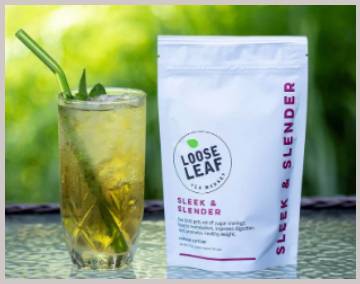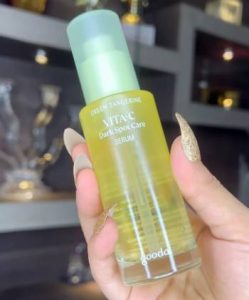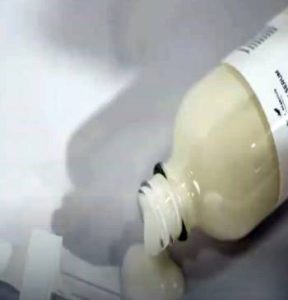If you’ve been looking into the loose leaf tea market, you’ve probably seen all the hype about its supposed superior quality, richer flavor, and health benefits. But let’s be real—not all loose leaf teas live up to those claims. I’ve tried my fair share, and while some are excellent, others are disappointing, overpriced, or just not worth the effort.
Take Sugarproof Tea, for example. It promises to reduce sugar cravings and make sweets less enjoyable, but based on both my experience and the reviews, it falls short. The taste is off, the effects are questionable, and for the price, you’d expect better. If you’re thinking about buying it, I’d recommend reconsidering.
But what about the rest of the loose leaf tea market? Is it truly better than bagged tea? And if you want high-quality tea, where should you look? That’s what we’ll break down in this review—what works, what doesn’t, and whether loose leaf tea is worth your time and money.
What Is Loose Leaf Tea Market?

Loose leaf tea is a type of tea made from whole or large tea leaves, offering a fresher and more flavorful experience compared to bagged tea. Unlike conventional tea bags, which often contain small tea particles known as dust and fannings, loose leaf tea retains its natural oils, aromas, and essential nutrients. This results in a richer, more complex taste that enhances the tea-drinking experience.
One of the key benefits of loose leaf tea is its ability to expand and unfurl when steeped, allowing for better extraction of flavors and beneficial compounds. The quality of loose leaf tea varies depending on its origin, processing methods, and freshness. Premium loose leaf teas, such as high-grade green, black, oolong, and white teas, are carefully processed to preserve their delicate flavors and antioxidants.
Brewing loose leaf tea requires a bit more effort compared to tea bags, as it needs an infuser, strainer, or teapot. However, this extra step allows tea lovers to customize their brew’s strength and temperature, ensuring a perfect cup every time. Many tea enthusiasts prefer loose leaf tea not only for its superior taste but also for its potential health benefits, including improved digestion, stress relief, and antioxidant support.
While loose leaf tea may not be as convenient as pre-packaged options, it offers a more authentic and rewarding experience. Whether you enjoy a bold black tea in the morning or a soothing herbal infusion at night, loose leaf tea provides an unmatched depth of flavor and freshness.
The Reality of the Loose Leaf Tea Market
The loose leaf tea industry is booming, but that doesn’t mean every product is worth your money. Some companies genuinely deliver high-quality, fresh tea, while others rely on clever marketing to push overpriced or low-grade leaves.
Sugarproof Tea, for instance, is marketed as a game-changer for sugar cravings, but many users, including myself, found it underwhelming. The flavor is weak, it requires additional ingredients to be palatable, and the supposed benefits don’t seem to hold up.
Then there’s the issue of cost. Many loose leaf teas are significantly more expensive than bagged tea, but is the difference always justified? Sometimes, yes. But often, you’re paying for branding rather than superior quality.
How to Get the Most Out of Loose Leaf Tea?

To get the most out of loose leaf tea, start by choosing a high-quality brand with fresh, whole leaves. Not all loose leaf teas are created equal, and stale or low-grade tea won’t give you the rich flavor or health benefits you expect.
Look for tea that is sourced from reputable farms, has a strong natural aroma, and doesn’t contain unnecessary additives. Proper storage is also key—keep your tea in an airtight container away from heat, moisture, and light to maintain its freshness and potency.
When it comes to brewing, water temperature and steeping time matter. Green and white teas require lower temperatures to avoid bitterness, while black and herbal teas can handle boiling water.
Oversteeping can make your tea taste harsh, while understeeping leaves it weak and flavorless. Follow the recommended brewing times for the best results. Investing in a good infuser or teapot with a built-in strainer can also improve the experience, ensuring that the leaves have enough room to expand and release their full flavor.
Experimenting with different blends and preparation methods can help you discover what works best for you. Some teas taste great on their own, while others benefit from a splash of lemon, honey, or milk. If you’re drinking tea for health benefits, consistency is key—make it a part of your daily routine rather than expecting instant results. By choosing quality tea, storing it properly, and brewing it correctly, you’ll get the most out of your loose leaf tea experience.
Pros and Cons of Loose Leaf Tea

Pros:
- Better flavor potential: High-quality loose leaf teas can offer more depth and complexity in taste compared to standard tea bags.
- More variety: You’ll find a wider range of flavors and blends, from pure green and black teas to herbal infusions.
- Health benefits: When sourced properly, loose leaf tea can be rich in antioxidants and free from additives found in some bagged teas.
- Sustainability: Many loose leaf teas come with minimal packaging, making them a more eco-friendly choice.
- Customizable brewing: You have full control over how strong or light you want your tea, depending on how much you use.
Cons:
- Inconsistent quality: Just because it’s loose leaf doesn’t mean it’s fresh or high-quality. Some brands sell stale or low-grade tea at premium prices.
- More effort required: Unlike tea bags, loose leaf tea requires steeping equipment like an infuser or teapot.
- Storage matters: If not stored properly, even a good loose leaf tea can lose its freshness quickly.
- Higher cost: Good loose leaf tea is often pricier than bagged tea, and some brands overcharge for mediocre products.
- Some teas require additives: As seen with Sugarproof Tea, some loose leaf blends just don’t taste great on their own and need extra ingredients to be drinkable.
Also Read: My Experience With Ancient Healing Teas
CholestOff Plus Vs. Other Cholesterol Supplements
- Loose Leaf Tea Vs. Tea Bags
Loose leaf tea offers a fresher, more flavorful experience than traditional tea bags. The leaves are larger and less processed, allowing for a richer infusion of flavors and nutrients. Tea bags, on the other hand, often contain smaller tea particles (dust and fannings), which can result in a weaker and sometimes stale taste. While tea bags are more convenient, they lack the depth of flavor and quality that loose leaf tea provides. If you value taste and health benefits over convenience, loose leaf tea is the better choice.
- Loose Leaf Tea Vs. Instant Tea
Instant tea is designed for speed and ease, but it comes at the cost of quality. Unlike loose leaf tea, which retains its natural oils and flavors, instant tea is processed into a powder, often with added sugars and artificial flavors. The result is a tea that lacks complexity and potential health benefits. Loose leaf tea requires more effort to prepare, but it delivers a more authentic, aromatic, and beneficial cup of tea. If quality matters to you, loose leaf tea is the superior option.
- Loose Leaf Tea Vs. Bottled Tea
Bottled tea is convenient for on-the-go consumption, but it is usually loaded with preservatives and added sugars. Loose leaf tea, on the other hand, is fresh and free from unnecessary additives, allowing you to control its strength and ingredients. While bottled tea may seem like a time-saver, it lacks the depth, purity, and customization of loose leaf tea. If you want full control over your tea experience, loose leaf tea is the better option.
- Loose Leaf Tea Vs. Herbal Infusions
Herbal infusions, while often grouped with teas, do not actually contain tea leaves. They are made from dried herbs, flowers, and fruits, offering a caffeine-free alternative. Loose leaf tea, particularly green or black varieties, contains antioxidants and compounds that provide potential health benefits like improved focus and metabolism. Herbal infusions are great for relaxation and variety, but if you’re looking for traditional tea with distinct flavors and benefits, loose leaf tea is the better fit.
- Loose Leaf Tea Vs. Matcha
Matcha is a finely ground green tea powder that delivers a concentrated dose of antioxidants and caffeine. Unlike loose leaf tea, which is steeped and then discarded, matcha is fully consumed, maximizing its benefits. However, matcha has a strong, earthy taste that may not appeal to everyone, and it requires specific preparation methods. Loose leaf tea provides a broader range of flavors and caffeine levels, making it a more versatile choice for those who enjoy experimenting with different types of tea.
Also Read: My Thoughts On Dieters Drink Tea
Frequently Asked Questions (FAQs)
The highest quality loose leaf teas come from reputable brands that focus on fresh, organic, and single-origin sourcing. Look for whole, unbroken leaves and avoid anything with artificial additives.
In general, loose leaf tea has the potential to be better quality than bagged tea since it retains more essential oils and flavors. However, not all loose leaf teas are high quality, and some bagged teas can be just as good, if not better.
Loose leaf tea requires extra equipment and effort compared to bagged tea. It can also be expensive, and if not stored properly, it loses its freshness quickly. Additionally, not all loose leaf tea is high quality, making it easy to overpay for a mediocre product.
High-quality loose leaf tea has whole, intact leaves with a strong, fresh aroma. It should be free from artificial flavors and have a natural, complex taste. If the tea looks like dust or has a weak scent, it’s likely low-grade.
Final Thoughts
Not all loose leaf tea is worth the hype, and Sugarproof Tea is a prime example of a product that doesn’t live up to expectations. While loose leaf tea can be a great option when sourced properly, it requires effort, proper storage, and the right brand choice. If you’re looking for high-quality tea, there are far better options out there.



